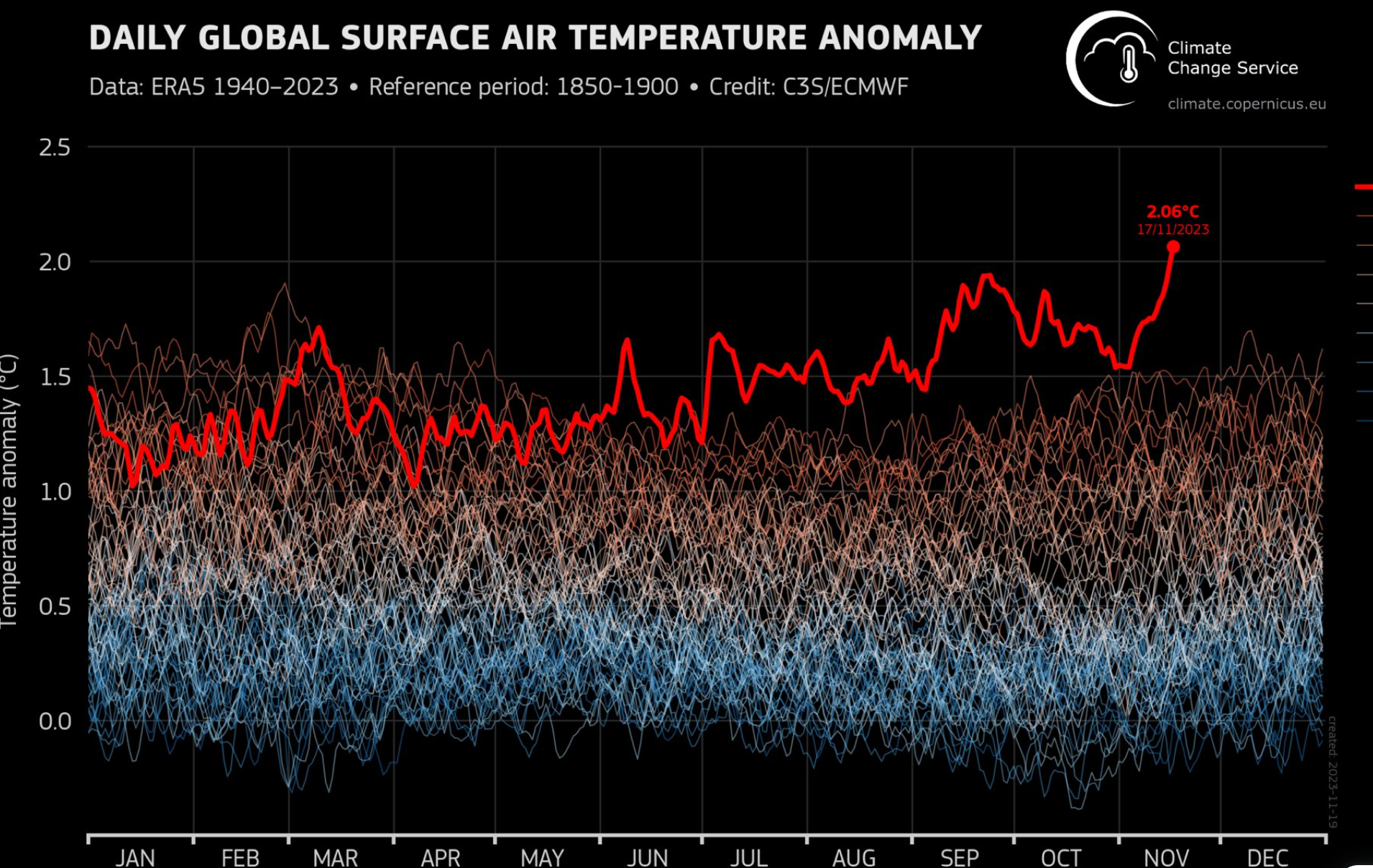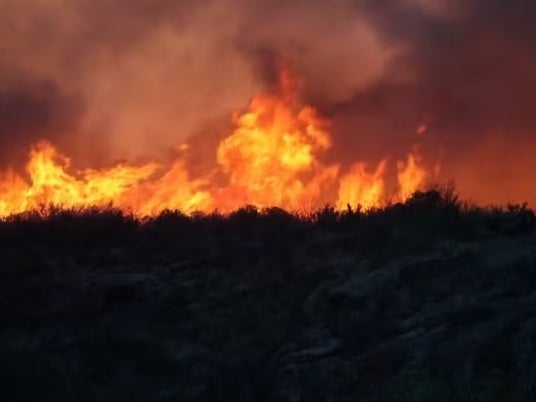Earth crosses 2C warning line for first time
The breach, while temporary, surpasses upper warming limit of the global Paris Agreement

Your support helps us to tell the story
From reproductive rights to climate change to Big Tech, The Independent is on the ground when the story is developing. Whether it's investigating the financials of Elon Musk's pro-Trump PAC or producing our latest documentary, 'The A Word', which shines a light on the American women fighting for reproductive rights, we know how important it is to parse out the facts from the messaging.
At such a critical moment in US history, we need reporters on the ground. Your donation allows us to keep sending journalists to speak to both sides of the story.
The Independent is trusted by Americans across the entire political spectrum. And unlike many other quality news outlets, we choose not to lock Americans out of our reporting and analysis with paywalls. We believe quality journalism should be available to everyone, paid for by those who can afford it.
Your support makes all the difference.Earth has breached the milestone temperature of 2C for the first time – a temporary step but one that scientists warn is far off-course in fighting the climate crisis.
On Friday, the global average temperature was 2.06C higher than the pre-industrial levels for the first time since records began, according to preliminary data from the European Center for Medium-Range Weather Forecasts (ECMWF).
The breach, while temporary, surpassed the upper warming limit of the global Paris Agreement which was set to avert the most harmful consequences of the climate crisis.
“Our best estimate is that this was the first day when global temperature was more than 2C above 1850-1900 (or pre-industrial) levels, at 2.06C,” Samantha Burgess, the deputy director of the Copernicus Climate Change Service, said on social media.
This preliminary data will require weeks to be confirmed with real-life observations.

The global temperature – the average of all weather stations around the world – has been climbing since humans started burning oil, gas and coal in excessive amounts during the industrial revolution.
The 2C breach comes as a new United Nations report warned that the world is speeding towards a rise of 2.9C this century.
To have even a chance of remaining at 1.5C – the lower Paris limit – countries need to cut emissions by 42 per cent in the next six years, according to the UN Environment Programme’s Emissions Gap report on Monday.
Instead, emissions, largely from fossil fuels, rose 1.2 per cent last year, the UNEP report said.
The planet currently sits at around 1.3C-1.4C, and temporarily crossed the 1.5C milestone in June.
While Friday’s temporary 2C breach does not mean the Paris Agreement limits have failed, climate experts say we are running out of time.
“If the trend continues, then 1.5C will be crossed in the early 2030s,” Eliot Jacobson, a retired professor of mathematics and computer science, wrote on X.

With every fraction of warming, the planet faces more cascading disasters and extreme weather events.
Heat, fire, flooding and storm records have tumbled in 2023 from the double whammy of the climate crisis layered with the cyclical phenomenon El Nino. This year is on track to be the hottest ever.
Harjeet Singh, head of global political strategy at the non-profit, Climate Action Network told The Independent that the 2C rise “is not just a statistic” but “a global climate crisis in action”.
“This is the cost of a fossil fuel-dependent development model: it harms the planet and costs lives,” he added.
The unprecedented temperatures are setting an urgent tone for Cop28, the global climate summit, which begins in two weeks in Dubai, where world leaders are under increasing pressure to do more to cut emissions.
Join our commenting forum
Join thought-provoking conversations, follow other Independent readers and see their replies
Comments